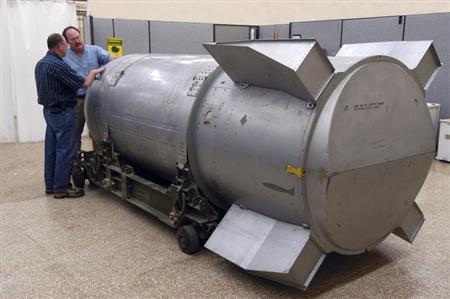
Going over its traditional dual policies of not using nuclear weapons first and not targeting non-nuclear weapons nations, India on Monday offered to enter into agreements incorporating the two principles. The country, however, has firmly ruled out joining the non-proliferation treaty (NPT).
"As a responsible nuclear power, India has a policy of credible minimum deterrence based on a 'No First Use' posture and non-use of nuclear weapons against non-nuclear weapon states. We are prepared to convert these into bilateral or multilateral legally binding arrangements," IANS quoted Ambassador DB Venkatesh Varma as saying.
However, India has refused to join the NPT that prevents nuclear power and non-nuclear power nations from spreading the nuclear technology.
"There is no question of India joining the NPT as a non-nuclear weapon state," Varma said, adding that if this happens, India will have to give up its nuclear weapons.
Additionally, India is not ready to surrender to Fissile Material Cutoff Treaty (FMCT) which will prohibit it from further producing the fissile materials used to manufacture nuclear weapons, and has proposed negotiation.
"Without prejudice to the priority we attach to nuclear disarmament, we support the negotiation in the Conference on Disarmament of an FMCT that meets India's national security interests," Varma added.
Although, India is firm on continuing manufacturing nuclear weapons and fissile materials, it wants other nuclear states to agree on the draft that does not allow them to use or threaten other nations with nuclear weapons.
India has reintroduced draft resolution on a Convention on the Prohibition of the Use of Nuclear Weapons and criticised nuclear power countries for repeatedly voting against it since its first introduction in 1982.
Varma said he regrets that a "sizeable minority of member states -- some of them nuclear weapon states, some with nuclear weapons stationed on their soil and others with alliance partnerships underwritten by policies of first use of nuclear weapons -- have voted against this resolution".
And, "for reasons that are difficult to understand, some member states which are today in the forefront of efforts to highlight the humanitarian impact of use of nuclear weapons have also voted against this resolution."

















